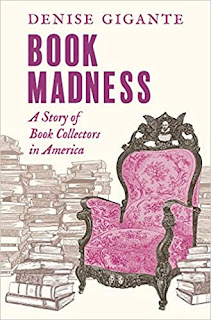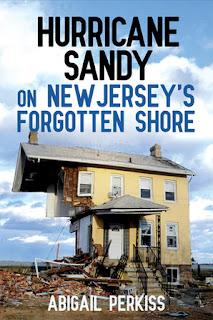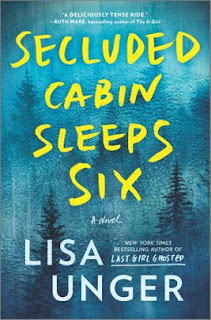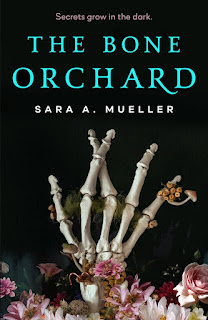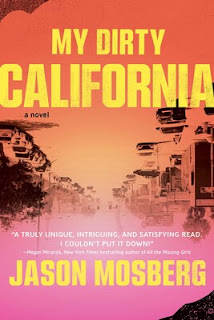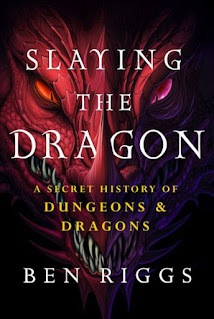D.W. Buffa's recent novel is
The Privilege, the ninth legal thriller involving the defense attorney Joseph Antonelli. The tenth,
Lunatic Carnival, will be published soon. He has also just published
Neumann's Last Concert, the fourth novel in a series that attempts to trace the movement of western thought from ancient Athens, in
Helen; the end of the Roman Empire, in
Julian's Laughter; the Renaissance, in
The Autobiography of Niccolo Machiavelli; and, finally, America in the twentieth century, in
Neumann's Last Concert.
Buffa writes a monthly review for the Campaign for the American Reader that we're calling "Third Reading." Buffa explains. "I was reading something and realized that it was probably the third time that I knew it well enough to write something about it. The first is when I read it when I was in college or in my twenties, the second, however many years later, when I wanted to

see if it was as good as I remembered, and the third when I knew I was going to have to write about it."
Buffa's
"Third Reading" of The Collected Works of Thomas Babington Macaulay begins:
One summer, years ago, wandering into a musty old book store in Manhattan, I discovered two sets of the collected works of Francis Bacon, one bound in an unpretentious plain cloth, the other, five times more expensive, bound in gorgeous green and gold leather. When I asked the bookstore owner why the one was so much more expensive than the other, he gave me one of those looks jaded New Yorkers reserve for out of town idiots and told me there was only one reason why people would buy the leather bound collected works of Francis Bacon or of anyone else: “They don’t buy them to read them; they buy them for the furniture value.”
This seemed worse than murder. Something had to be done; someone had to rescue all these priceless works of the human mind from becoming part of an interior decorator’s overpriced color scheme. When a few years later I discovered in a Chicago bookstore the Whitehall edition of the collected works of Thomas Babington Macaulay, of which only a thousand copies had been printed, twenty volumes bound in gleaming maroon leather, I knew my duty. It was one of the best decisions I ever made.
Ten volumes contain Macaulay’s masterful History of England, the other ten the essays that made him famous as a literary figure in the early 19th century as well as his speeches. His speech in Parliament on the Reform Bill of 1832, the bill that broadened the franchise to include the middle class and changed British politics forever, is one of the greatest speeches ever given. Reading it, even now, nearly two hundred years later, not only holds your attention, but as the speech draws to its conclusion, makes you think you are there, listening with the other members of Parliament, ready to jump to your feet cheering. Delivered at tremendous speed, it lasted well over an hour, every word spoken from memory. And while it is true that everyone had better memories then, when minds were not, like ours, cluttered with a million different disconnected electronic images and sounds, Macaulay’s memory was truly extraordinary. He had, among other things, memorized...[read on]
About Buffa's recent novel
Neumann’s Last Concert, from the publisher:
Neumann’s Last Concert is a story about music and war and the search for what led to the greatest evil in modern history. It is the story of an American boy, Wilfred Malone, who lost his father in the early days of the Second World War and a German refugee, Isaac Neumann, the greatest concert pianist of his age when he lived  in Berlin, but who now lives, anonymous and alone, in a single rented room in a small town a few miles from San Francisco.
in Berlin, but who now lives, anonymous and alone, in a single rented room in a small town a few miles from San Francisco.
Wilfred has a genius for the piano, “a keen curiosity not yet corrupted by vanity” and “a memory that forgot nothing essential.” Neumann, alone in his room, is constantly writing, an endless labyrinth of questions and answers, driving him farther and farther back into the past, searching for the causes, searching for the meaning, of what happened in Germany, trying to understand what had led him, a German Jew, to stay in Germany when he could have left but instead continued to perform right up to the night that during his last concert they took his wife away.
Neumann’s Last Concert is a novel about the great catastrophe of the 20th century and the way in which music, great music, preserves both the hope of human decency amidst the carnage of human insanity and the possibility of what human beings might still accomplish.
Visit
D.W. Buffa's website.
Third reading: The Great Gatsby.
Third reading: Brave New World.
Third reading: Lord Jim.
Third reading: Death in the Afternoon.
Third Reading: Parade's End.
Third Reading: The Idiot.
Third Reading: The Decline and Fall of the Roman Empire.
Third Reading: The Scarlet Letter.
Third Reading: Justine.
Third Reading: Patriotic Gore.
Third reading: Anna Karenina.
Third reading: The Charterhouse of Parma.
Third Reading: Emile.
Third Reading: War and Peace.
Third Reading: The Sorrows of Young Werther.
Third Reading: Bread and Wine.
Third Reading: “The Crisis of the Mind” and A Man Without Qualities.
Third reading: Eugene Onegin.
Third Reading: The Collected Works of Thomas Babington Macaulay.
--Marshal Zeringue
 in domestic horror, he is perfectly placed to translate the recent successes of the genre from the silver screen to the written word – while adding something new and wholly his own.
in domestic horror, he is perfectly placed to translate the recent successes of the genre from the silver screen to the written word – while adding something new and wholly his own.

